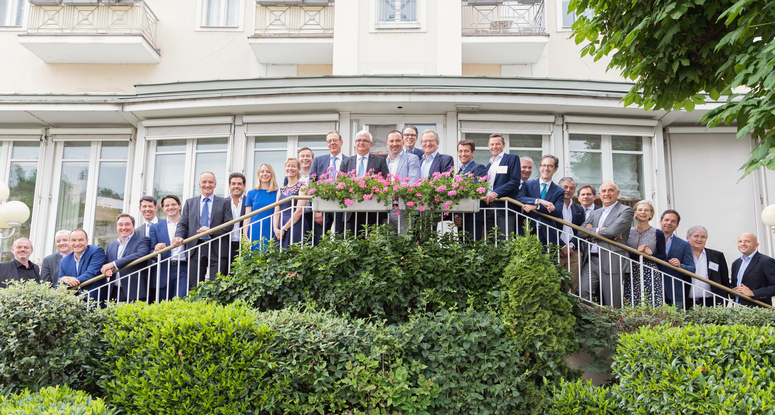
By Bill Kistler
The provocative conversation at the Forum suggested that the retail real estate business is at a crossroads, facing unprecedented change and disruption. However, participants see new opportunities emerging for those bold enough to seize them.
A spirited debate over what “keeps you awake” versus what “wakes you up” (worries and motivations) kicked off. Anxieties ranged from rapidly changing consumer behavior and the growth of e-commerce to security and political uncertainty.
In the positive column, there was a consensus that challenging times are stimulating new concepts and opportunities and proving the resilience of the retail real estate industry.
Forum conversations revolved around five core themes: consumers, retailers, capital, places, and people.
Consumers
There was broad agreement that it’s no longer enough to focus on our relationships with retailers. While retailers remain a landlord’s principal “customer,” as one participant said: “We cannot depend on retailers as the source for understanding consumer trends.”
Understanding shoppers requires in-depth knowledge of consumer demographics, their behavior, and what kinds of places attract them. Customers are more segmented, reflecting socio-economic polarization. They don’t all share the same values or shopping behaviors and consumers will not forgive retailers, or landlords, who fail to adapt to their individual needs.
As one of the largest generations in history and soon to reach their prime spending years, “millennials” are less focused on “stuff” and more on experiences. They are bored by the sameness of stores and shopping environments and, as one participant acknowledged, “We need to create places and experiences that tell a story and drive sales.”
As consumers become increasingly technologically savvy, retailers and landlords must embrace innovation and drive traffic and revenue across both the physical and digital worlds. Ultimately, the store remains the cornerstone of omni-channel strategies for the majority of retailers.
The growth of “click & collect” models offers consumers greater flexibility than home delivery and presents retailers with greater cross-selling opportunities for other purchases while picking up in-store.

Retailers
“Retail real estate is inseparably tied to the fate of the retailers who occupy it.” While this is obvious, participants agreed that most need to work more closely with their tenants to understand the business challenges they face.
Retailers are under great pressure to adapt their business models. Rapidly changing consumer behavior, e-commerce, evolving socio-economic trends, and omni-channeling all add to the challenges in the landlord-tenant relationship.
Retailer bankruptcies are an inevitable “survival of the fittest” trend and landlords are working hard to actively manage their tenants.
In future, the landlord-retailer relationship should be more of a partnership, with one participant commenting: “Spending more time with retailers enables us to build trust, create the right environments and mix, and understand different shopping channels and what’s happening in other markets.”

Capital
Despite many global investors seemingly “spooked” by media attention on the so-called “retail Armageddon” in the US, investment in European retail real estate remains comparatively robust.
In Europe, there is a relatively healthy appetite for retail property, with European REITs reporting only small corrections (down +/- 10% off all-time highs in 2016). Furthermore, Europe is much less dependent on department store anchors and investment models favor less pure-retail and more complex, mixed-use schemes with residential and commercial space.
Investors are optimizing their portfolio compositions and are selling non-future-proof assets, which is leading to polarization in the market. Although underwriting quality has improved since 2007, questions remain on whether capital expenditure to maintain a compelling shopping experience and retail growth is adequately budgeted.
Rental growth is currently being driven by the dining, leisure, and entertainment sectors and services such as health & beauty. Active management, such as tenant mix diversification and optimization, lease management, and CAPEX improvements is also key.

Places
“Creating great places has never been more important.” Several Forum participants said that their favorite shopping places are the centers in great cities with character, history, culture, and authenticity.
There is a sense that too much uniformity driven by the globalization of retail has led to a need for a stronger local connection—“glocal.” Design is therefore a key element in creating successful retail destinations with distinct character and identity.
Europe continues to attract tourists from across the globe, helping to reinforce and drive the evolution of retail destinations and a vibrant, diverse retail offer is essential for city prosperity – the old adage that “great retail makes great cities” is certainly still relevant today.
People
“Constant change means we need to be more agile, reinventing how we do business as much as we need to reinvent our real estate.” People and retail real estate organizations are often too tied by past practice. Landlords know they need to focus on customer experience, but often do not have the necessary skills on their teams.
Better employee training at all levels is required to develop these skills as, historically, too much focus on processes has led to a lack of creativity. The skills and personalities of property professionals have too often been out of line with the more imaginative and innovative side of retailing.
A new approach is now required, whereby landlords “listen more to our clients and don’t just see shopping centers through KPIs.”
ICSC Europe Priorities
 To close the Forum, participants offered their suggestions on how ICSC Europe can enhance its value and relevance to members:
To close the Forum, participants offered their suggestions on how ICSC Europe can enhance its value and relevance to members:
- Connect to retailers: Foster a more collaborative relationship, focused on common issues, to stimulate a better flow of information.
- Focus on key themes: from creating community to disruptive technologies and diversification of uses in shopping centers.
- Invest in advocacy: Develop a stronger collective voice to champion the industry in Brussels.
- Make security a priority: The ICSC should be at the center of this important issue and a resource for the industry.
- Be champions of sustainability: Work towards shared, high standards of environmental stewardship.
- Industry image: Promote the retail real estate industry with a narrative supported by research and data.
- Nurture talent: Connect to the next generation of industry leaders and attract talent from other sectors into retail real estate.
It was clear from Forum discussions that borders are not barriers to ideas, retailers, and capital. The insights shared by Forum participants will help the ICSC better serve its members in Europe.







